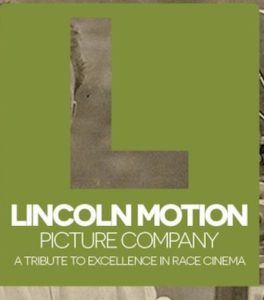
The Lincoln Motion Picture Company was founded on this date in 1916, the first movie company owned and controlled by Black filmmakers.
Lincoln was the creation of Black actor Noble Johnson and his brother George Johnson (a postal employee in Omaha). Lincoln Films established a reputation for producing films that showcased Black talent across the entire spectrum of cinema. Noble Johnson was the company's president; the secretary was actor Clarence A. Brooks. Dr. James T. Smith was treasurer, and Dudley A. Brooks was the assistant secretary. Incorporated in January 1917, Lincoln Motion Picture Company was approved to issue 25,000 shares of common stock on April 30, 1917.
The first Lincoln production was a drama called "The Realization of a Negro's Ambition" (1916). The second was titled "A Trooper of Troop K" (1917), which dealt with a massacre of Black troops in the Army's 10th Cavalry during the American operation against Mexican bandits and revolutionaries in 1916. Although the Johnson brothers wanted the films to appeal to broader audiences, they were primarily booked in special locations, such as churches and schools, and in the few "Colored Only" theaters in the United States. By 1920, the Lincoln company had completed five films, including "A Man's Duty" (1919), but it was a minor business operation.
Noble Johnson gave up his position with the company when he became a contract actor at Universal Pictures, and Smith assumed the company's presidency. Lincoln Productions accepted an offer for financial backing from a white investor, P. H. Updike, in Los Angeles. George Johnson supervised the marketing and promotion of Lincoln's most ambitious project, their film "By Right of Birth," which began in October 1921. Dora Mitchell wrote the script based on a story by George Johnson. Booker T. Washington was also seen in a cameo role. Although Blacks managed the Lincoln Film Company, Updike doubted “By Right of Birth” as a moneymaking proposition.
Johnson rented the Trinity Auditorium (now the Embassy Auditorium) in the Embassy Hotel in downtown Los Angeles for the evenings of June 22 and 23, 1921. Johnson divided the house into ten sections and "engaged ten of the prettiest girls we could find" to sell tickets. In two weeks, the women sold out the two performances. The affair was a success, but the effort had little impact on the film's overall commercial prospects.
The Lincoln Motion Picture Company began its existence with great expectations. White audiences were needed, but they were not interested at the time. Without a wider audience, the Lincoln Motion Picture Company was doomed to failure, and “By Right of Birth” proved to be the company's swan song. The Lincoln Motion Picture Company lasted until 1921.
Black First:
2,000 years of extraordinary achievement
by Jessie Carney Smith
Copyright 1994 Visible Ink Press, Detroit, MI
ISBN 0-8103-9490-1